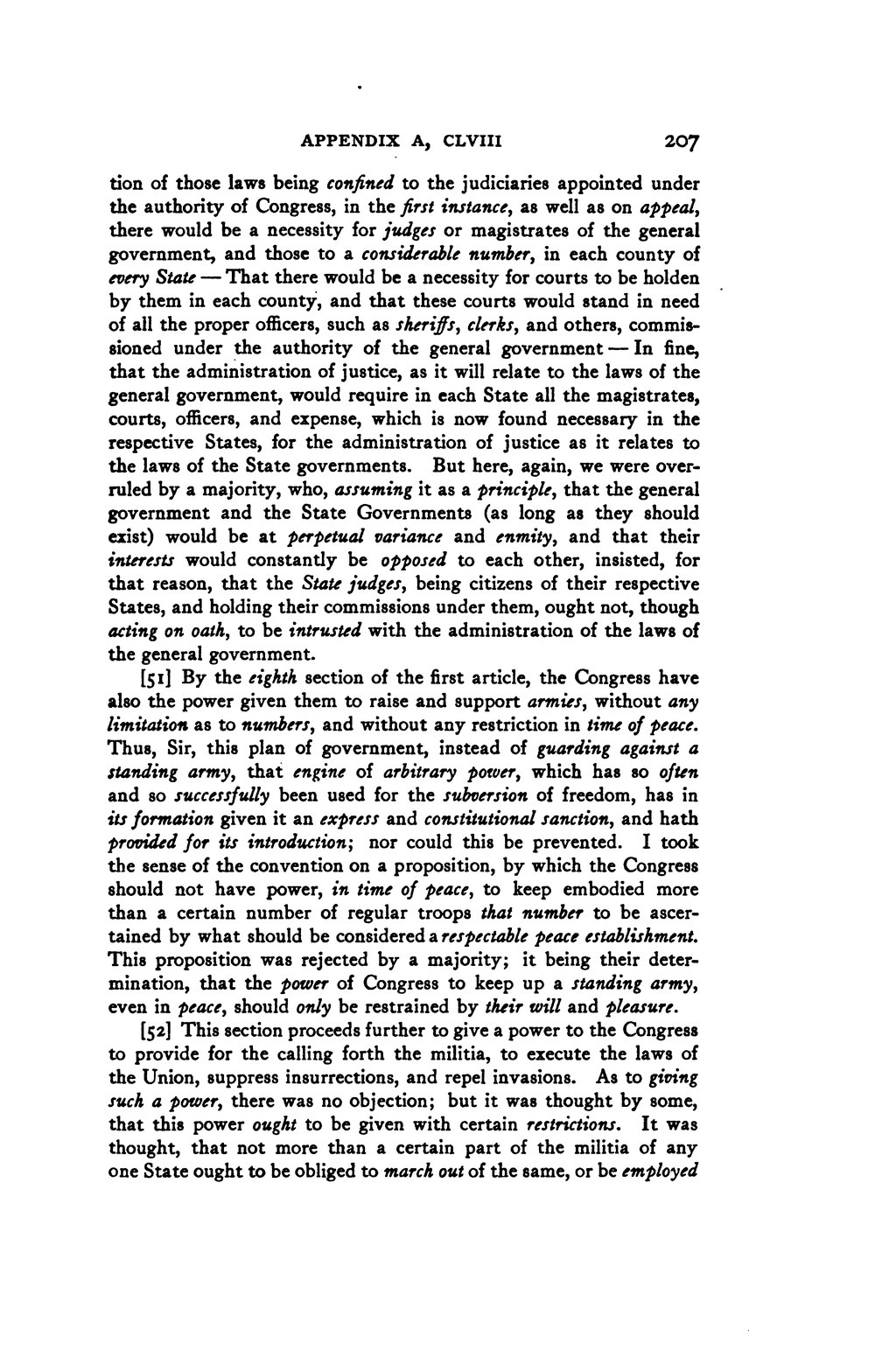tion of those laws being confined to the judiciaries appointed under the authority of Congress, in the first instance, as well as on appeal, there would be a necessity for judges or magistrates of the general government, and those to a considerable number, in each county of every State—That there would be a necessity for courts to be holden by them in each county, and that these courts would stand in need of all the proper officers, such as sheriffs, clerks, and others, commissioned under the authority of the general government—In fine, that the administration of justice, as it will relate to the laws of the general government, would require in each State all the magistrates, courts, officers, and expense, which is now found necessary in the respective States, for the administration of justice as it relates to the laws of the State governments. But here, again, we were overruled by a majority, who, assuming it as a principle, that the general government and the State Governments (as long as they should exist) would be at perpetual variance and enmity, and that their interests would constantly be opposed to each other, insisted, for that reason, that the State judges, being citizens of their respective States, and holding their commissions under them, ought not, though acting on oath, to be intrusted with the administration of the laws of the general government.
[51] By the eighth section of the first article, the Congress have also the power given them to raise and support armies, without any limitation as to numbers, and without any restriction in time of peace. Thus, Sir, this plan of government, instead of guarding against a standing army, that engine of arbitrary power, which has so often and so successfully been used for the subversion of freedom, has in its formation given it an express and constitutional sanction, and hath provided for its introduction; nor could this be prevented. I took the sense of the convention on a proposition, by which the Congress should not have power, in time of peace, to keep embodied more than a certain number of regular troops that number to be ascertained by what should be considered a respectable peace establishment. This proposition was rejected by a majority; it being their determination, that the power of Congress to keep up a standing army, even in peace, should only be restrained by their will and pleasure.
[52] This section proceeds further to give a power to the Congress to provide for the calling forth the militia, to execute the laws of the Union, suppress insurrections, and repel invasions. As to giving such a power, there was no objection; but it was thought by some, that this power ought to be given with certain restrictions. It was thought, that not more than a certain part of the militia of any one State ought to be obliged to march out of the same, or be employed
